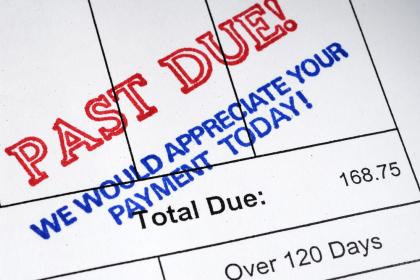
How to Create a Strong HOA Collection Policy
HOA Fees
HOA fees play a crucial role in the functionality of a community that if one or more residents fail to pay, it impacts everyone. Late and unpaid maintenance fees prevent a community from providing the services needed for it to thrive and improve property value. In cases such as these, it’s important that the association has basic guidelines in place to get them through the collection process as efficiently and smoothly as possible.
SNAP Collections is an easy, efficient and cost effective HOA collections platform for homeowner associations. We strive to ensure that homeowner associations recover more money on delinquent accounts than any other collections solution in the industry. In order for your homeowner association to be prepared for these special circumstances, we have come up with five steps on how to create a strong HOA collection policy.
1. Establish Concise Collection Policies
Establishing a clear and concise collection policy, before a homeowner becomes a delinquent one, will avoid any false accusations of your collection efforts being arbitrary. It will also assist your HOA Board in taking the right action at the right time.
2. Incorporate Important Dates and Penalty Amounts
Dates and penalty amounts are key for homeowners to understand that HOA fees are collected on a certain day and if the payment is late or never paid, they will face a penalty. Keep in mind that in the collection policy you should include how late payments will be applied to the penalty fee and other outstanding assessment balances.
3. Outline the Legal Actions due to Delinquent Assessments
This is a very important section to include in your collection policy. This should include how late notices are sent as well as actions and associated dates that homeowners can anticipate when they are considered delinquent. It should also mention legal fees, liens, late payment fees, state statutes, federal regulations and governing documents enforced in the area.
4. Include a Brief Summary of Possible Foreclosure Provisions
It’s ideal that the policy outlines how liens, foreclosures and bankruptcies work with HOA assessments. Many residents are unaware of these connections and it would be in the best interest of the homeowner association to inform them of this.
5. Enforce Your Collection Policy
A homeowner association must be willing to enforce their collection policy once they have created it. Consistently enforcing this policy will motivate residents to pay their assessments. If the homeowner association isn’t comfortable doing so, we recommend that they hire an HOA collections agency to take care of this aspect for them.
SNAP Collections has been successfully collecting past due assessments since 2006. Our experience and success speaks for itself, as we are now a national company serving condos and HOAs from the East Coast to Colorado. Contact us today for more information.
Tags: assessment collections for hoas, collection agencies for HOAs, Colorado Collections for HOAs, Colorado community association collections, Colorado financial collections, community association assessment collections, community association collections, Florida collections for HOAs, Florida community association collections, hoa collections, hoa delinquencies, hoa money, Home owner associations, Snap Collections, snap collections for community associations
